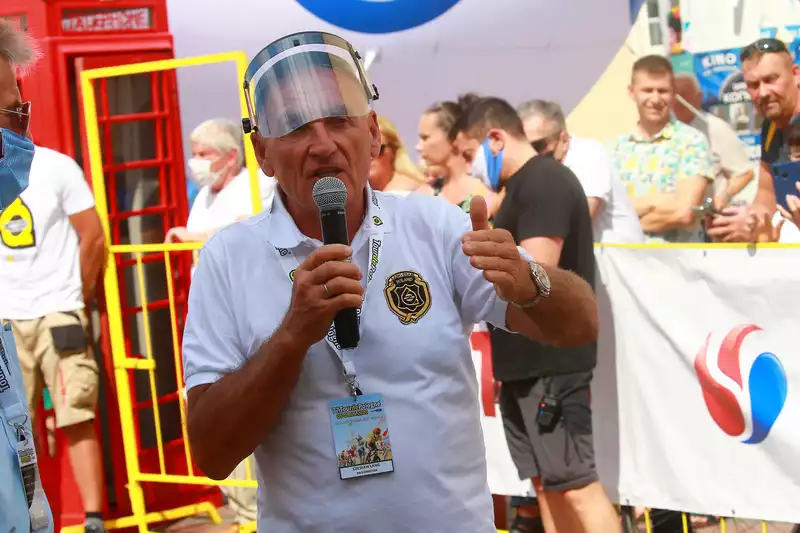Czeslaw Lang, race director of the Tour de Pologne, defended the safety of the first stage finish in Katowice, the final downhill straight where the race for the win was fought on Wednesday.
Organizers and the Polish media have touted the race as a "sprint hall of fame" for years, but a horrific crash in the final sprint of the opening stage left Fabio Jacobsen in a coma and race officials unconscious.
Dylan Groenewegen of Jumbo Visma was held responsible for the accident, and the UCI placed the blame for the crash on the Dutchman. He was disqualified and fined, and the win was awarded to Jacobsen.
Jacobsen was treated locally and taken to a specialized hospital. According to Polish media reports and a statement from his team, his condition was stable and no brain or spinal cord damage was found.
The UCI and organizers were criticized for conducting a downhill sprint in the technical lap final. Some riders, including Simon Geschke, Fabio Sabatini, and Jose Joaquin Rojas, criticized the downhill finish on Twitter, while others questioned the safety of the course.
Former sprinter Robbie McEwen told Cycling News that he was heartbroken that Jacobsen broke through the barriers so easily. He said, "Not only the organizers, but the UCI must be held accountable for that.
Regarding the stage finish, Lang denied that the route was designed recklessly.
"You start on one side of the road, it goes uphill a little bit, the group stretches out, there's a run to the finish, and then a little bit of a downhill. You can go pretty fast there, but have you ever seen a complete peloton at the finish? The riders go through this section three or four times, so you get to see it beforehand," he told Cycling News.
"This didn't happen because of poor preparation for the finish or because something was missing ...... This is foul play. I understand that sprinters get in each other's way. But here [Groenewegen] put his elbow out and drove him into the barrier," Lang added.
"Sprinters have a particular mindset. They need to win and they have tunnel vision. Otherwise they won't win and they won't bet everything on one card. There is no way to completely secure a race."
The technical 16.3 km loop in Katowice city center has become a staple of the Tour de Pollogne program, with the finish line being a descent on the Aleja Korfantego near the Spodek Multipurpose Arena.
In the past, many spectators have visited the finish area, but this year, due to sanitation, there were fortunately no spectators along the barrier where pieces of fence fell onto the road when Jacobsen crashed, splashing among the riders.
It wasn't just riders on Twitter who protested after the fact; CPA president Gianni Buño sent a letter to the UCI president and race organizers asking them to investigate compliance with safety measures mandated by regulations. The letter further asks the UCI to respond to the CPA's request for universal and pre-approved standards for barriers in the finish area and at key points in the race, and questions the safety of the downhill finish in a bunch sprint scenario.
"This is a selective finale, but it is not just a downhill sprint, as some, including Geschke, have suggested. It's a selective, stretching, fast finale. Lang noted. 'The barriers are set up at an angle, so that their legs don't stick out. They are fixed and clipped in place. We also used boards instead of banners because there have been cases of banners getting caught in the wheels and crashing. Everything was prepared as safely as possible," he explained.
Fearing the worst after seeing the crash, Lang believes the crash could have been much worse if there had been spectators.
"I think the judges at the finish line helped mitigate his fall a lot. Jacobsen hit him first and then fell. It was fortunate that there were no fans. If not, it could have been much worse. It was like hitting a tree," Lang said.
The prosecutor's office in Katowice has opened a formal investigation into charges of intentional injury, prosecutor Beata Ksionek-Novicka confirmed to media outlets on Thursday. Police have already secured video recordings and interviewed three people, and officers were seen working at the scene for several hours after Jacobsen's accident.
Under Polish criminal law, unintentional infliction of serious bodily injury carries a penalty of up to three years in prison.
.

Comments